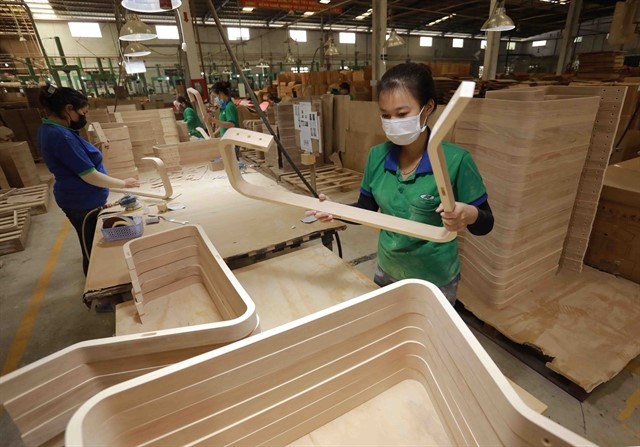Some firms likely to close due to higher anti-dumping tariff on plywood products in S Korea
Awaiting a final decision from the South Korea, Vietnamese enterprises have concerns over a potential higher anti-dumping duty in South Korea on plywood imports from Việt Nam.

Many Vietnamese enterprises will close if South Korea imposes a higher anti-dumping tax on Vietnamese plywood products exported to this market, according to the Việt Nam Timber and Forest Products Association (VIFORES).
In a petition relating to this issue sent by VIFORES to the Trade Remedies Authority under the Ministry of Industry and Trade, the Việt Nam Plywood Association (under VIFORES) reported that South Korean authorities are reviewing the anti-dumping tax for Vietnamese plywood products exported to this market in 2020 - 2023.
Awaiting a final decision from South Korea, Vietnamese enterprises have concerns over a potential higher anti-dumping duty in South Korea on plywood imports from Việt Nam.
The association’s petition follows indications that the anti-dumping duty on plywood exports to South Korea might soar to rates of between 4.1 per cent and 13.04 per cent.
According to the Việt Nam Plywood Association, about 152 businesses expected to be subject to a tax rate higher than 4 per cent would be unable to compete and have to stop operation. Workers of these businesses will lose their jobs as hundreds of factories have to close.
Raw material suppliers will also have to stop operations. Due to a lack of consumption, new forests will not be developed, and the entire production and supply chain for processing forest products will be interrupted.
Therefore, this association has requested the ministry’s support to maintain the current anti-dumping duty of 10.54 per cent, urging the Trade Remedies Authority to work with South Korean authorities to facilitate Việt Nam’s continued exports to this market, said Trịnh Xuân Dương, deputy head of the association.
He also said South Korea's investigation and imposition of the anti-dumping tax on Vietnamese plywood products is not objective. The investigated enterprises account for a few Vietnamese enterprises exporting this product to South Korea.
These enterprises' annual export revenues to this market have also accounted for no more than 20 per cent of Việt Nam's total export turnover from this product.
Besides that, out of six businesses under the re-investigation, Rongjia Company is now closed. Moreover, the export volume and value of the surveyed enterprises do not reflect the overall business results of Vietnamese enterprises exporting plywood products to South Korea.
Nguyễn Văn Đồng, secretary of the association, said South Korea is a high-potential market for plywood products. In the future, other Vietnamese businesses will be subject to general taxes when they export plywood products to this market.
In the long term, it will be a disadvantage and unfair to those businesses and reduce the exports of Việt Nam's plywood production industry.
South Korea is among the top four buyers of Việt Nam’s plywood, with Vietnamese plywood exports to South Korea exceeding US$201 million in 2023, accounting for 29 per cent in volume and 22.7 per cent in value of the total plywood export.
The imposition of anti-dumping duties on plywood from Việt Nam was initially issued under Decree 815 of the Ministry of Economy and Finance of South Korea on November 6, 2020, and subsequently amended by Decree 882 on December 31, 2021. — VNS





